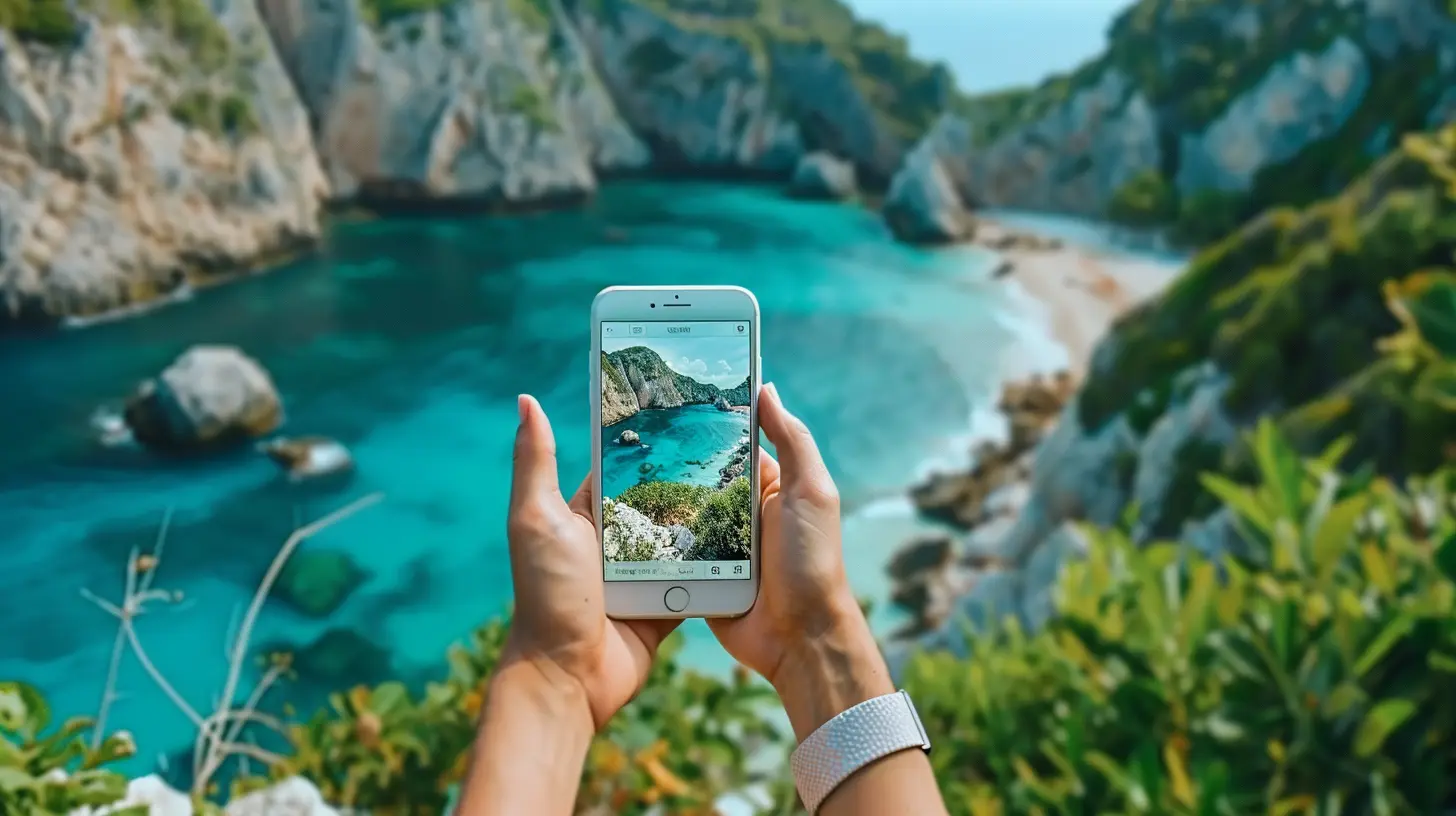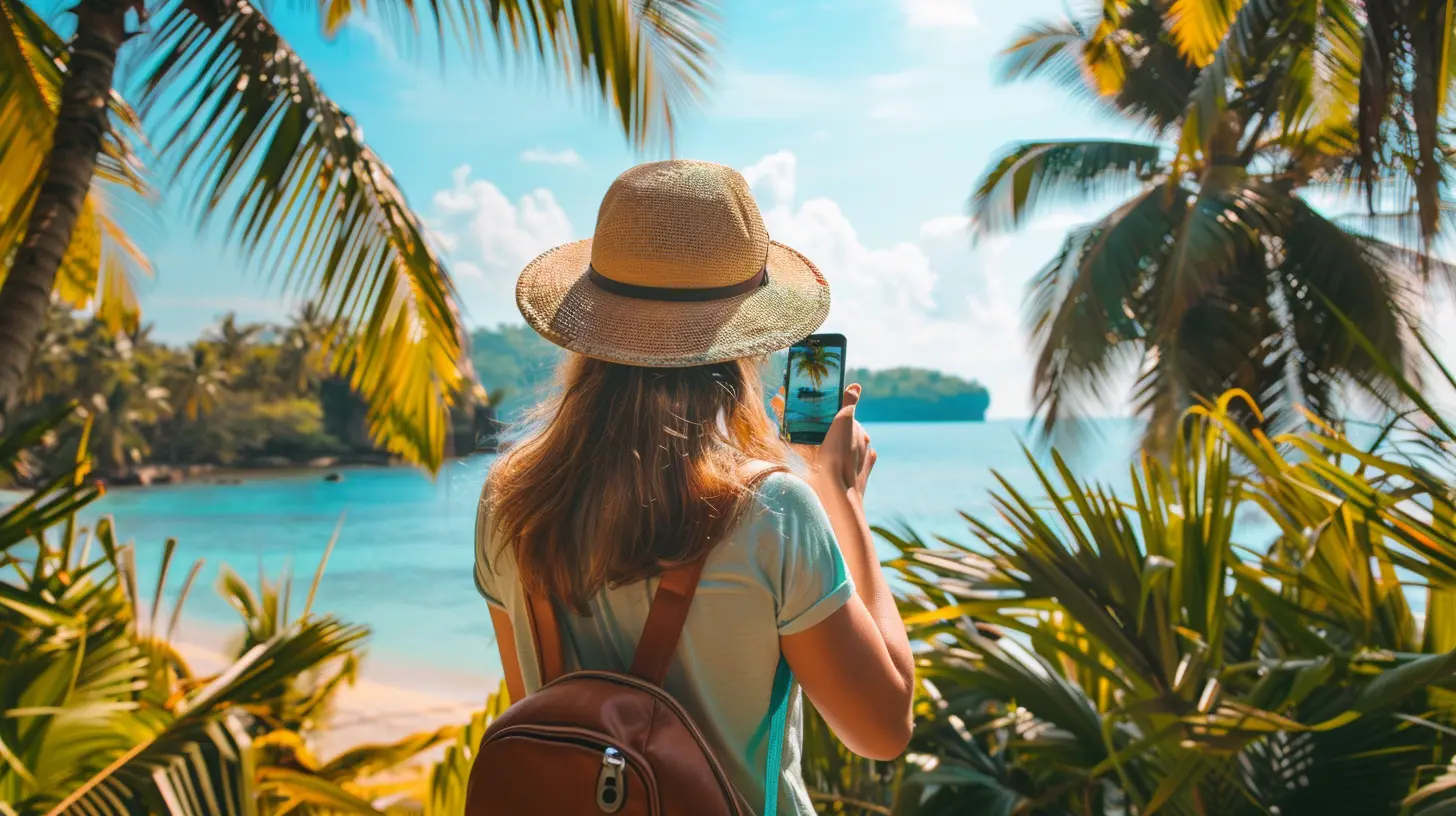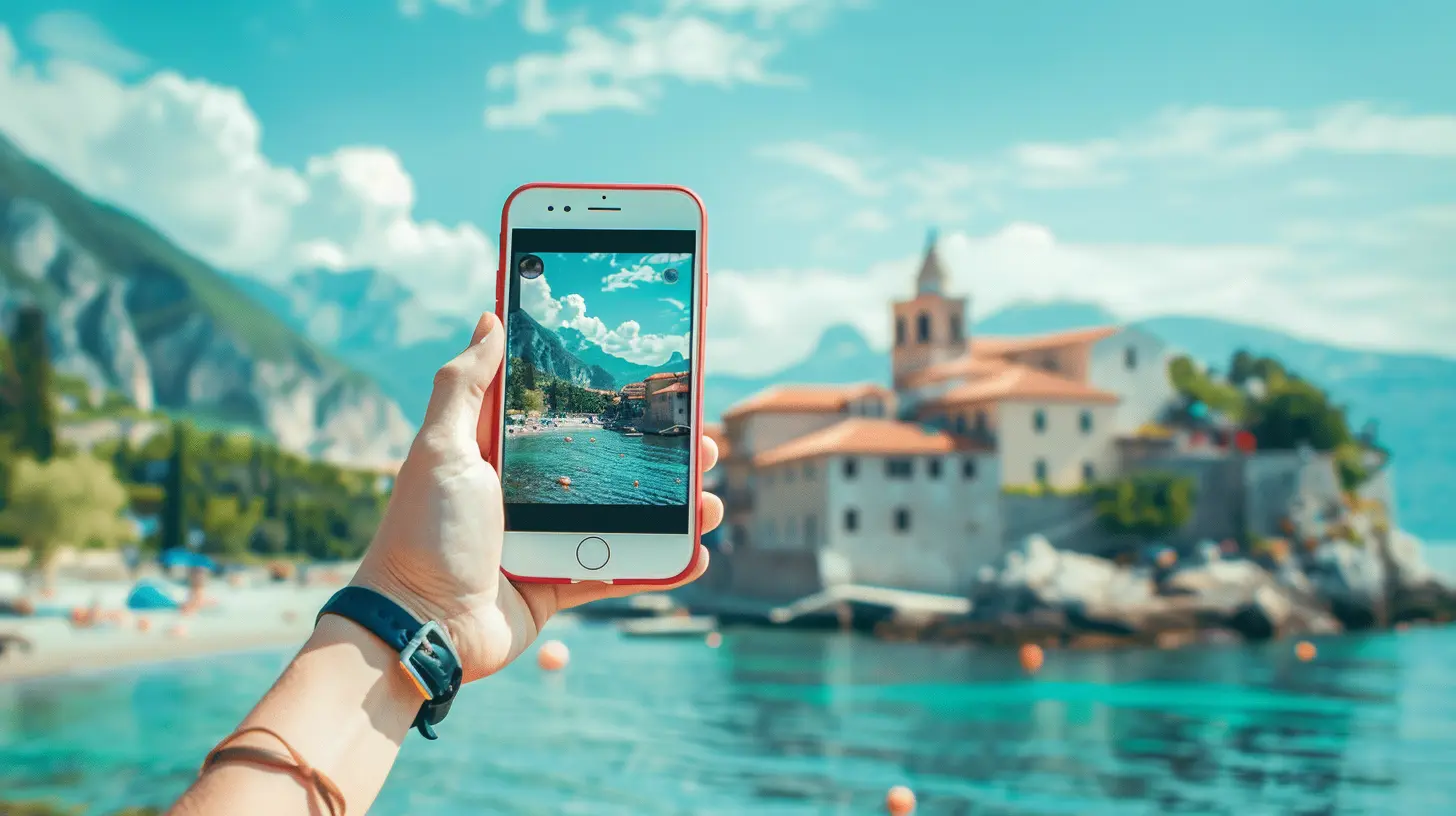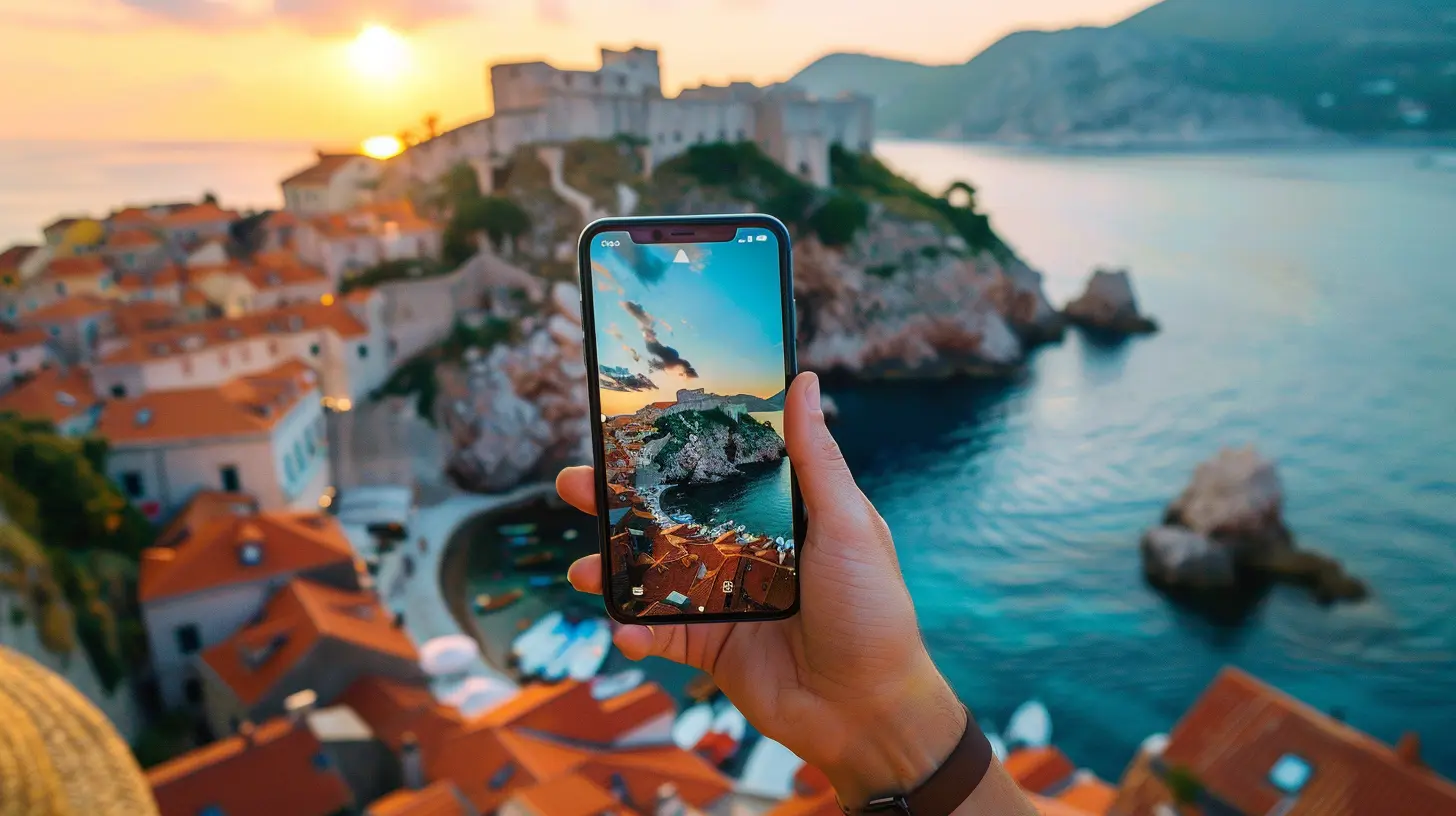How Travel Apps Are Personalizing Travel Experiences
6 November 2025
Okay, we’ve all been there—scrolling endlessly through travel blogs, trying to figure out where to go, what to do, and how not to end up eating at a random overpriced tourist trap. It’s a lot, right? Enter: travel apps.
Gone are the days of lugging around a Lonely Planet guidebook (no offense, we love you, LP). Today, travel apps are like your tech-savvy best friend who knows your vibe, your budget, and that you definitely need your morning latte with oat milk. So, how exactly are these pocket-sized wizards personalizing travel experiences? Buckle up, globetrotter—we’re diving in.
The Age Of Personalized Travel: Spoiler Alert—It’s All About You
Let’s face it. We live in a “me-centric” world. From curated Netflix picks to Spotify telling us we have exceptional taste (thanks, guys), everything is tailored. And surprise, surprise—travel is no exception.Travel apps are using artificial intelligence (AI), machine learning, and good ol’ user data to make your trips feel like they were designed by a version of you from the future. Creepy? Maybe. Convenient? Heck yes.
What Does "Personalized" Really Mean?
Imagine this: You wake up in Tokyo, and your phone alerts you to a hidden sushi spot around the corner that’s never too crowded and fits your budget. Meanwhile, your travel app reminds you of your 2 p.m. studio pottery class because it knows you're into artsy stuff. That’s not coincidental—that’s smart tech.Personalization means the app adjusts your entire travel experience based on:
- Your location
- Previous travel habits
- Preferences (like vegan eats or adrenaline-pumping adventures)
- Budget
- Real-time behavior (yes, it’s watching you—but in a good way)
It’s no longer one-size-fits-all travel advice. You’re the main character, baby.
The Magic Behind The Curtain: Tech That Makes It Happen
Let’s geek out for a minute (don’t worry, we’ll keep it fun). The personalization wizardry is all about:1. Artificial Intelligence (AI)
AI is the brainiac behind the scenes. It studies your behaviors and makes smart suggestions. If you've ever noticed how your app seems to suggest beach spots after you look for Bali once, that's AI doing its thing.2. Machine Learning
Machine learning is AI’s cool little cousin. It learns from your choices and gets smarter over time. Booked a spa in Iceland last year? Don’t be surprised when your app recommends a hot spring in Japan this year.3. Big Data
Imagine millions of travelers and their choices stored in one giant brain. Travel companies analyze all that info to spot trends and sharpen recommendations. It's like crowdsourced wisdom, but turbocharged.
Examples That’ll Blow Your Flip-Flops Off
Let’s look at some real-world examples that show just how next-level this stuff is.Google Travel: The OG of Organization
Google Travel doesn't just help with flights and hotels. If you're signed in, it practically reads your mind. It pulls info from your Gmail, maps out your itinerary, suggests nearby attractions, and keeps everything in one place.It even warns you if there’s a better time to visit a destination. Like a smart, slightly pushy travel agent that lives in your phone.
Hopper: Predicts Prices Like A Fortune Teller
Hopper is the crystal ball of travel apps. It uses historical data to tell you when flight or hotel prices will rise or drop. And then it sends you that magical “BOOK NOW!” notification when the time is right.Bonus: You can set filters (non-stop flights only, thank you very much), and it remembers your preferences.
TripIt: Your Type-A Travel Buddy
TripIt organizes all your travel plans into one clean itinerary. Flight confirmations, hotel bookings, car rentals—bam, all in one place. It even suggests nearby restaurants and activities based on your schedule and location.Airbnb: Hidden Gems For Your Vibe
Airbnb started with couches and is now a full-blown experience guide. It uses what you’ve previously booked to recommend future stays and experiences. If you loved that treehouse in Costa Rica, expect more eco-friendly hideaways to pop up.Plus, it offers curated categories like “design stays,” “luxe,” or “off-the-grid” for travelers who know what they like.
Real-Time Travel Assistance = Less Stress, More Sangria
You know what’s cooler than personalization? Real-time personalization. We’re talking:- Notifications about flight delays or gate changes
- Live suggestions when your plans change due to weather
- Last-minute deals near your current location
Let’s say you unexpectedly miss a connecting train in Italy (been there, cried that). Instead of spiraling, your app suggests a nearby hotel, books it in two taps, and pushes a notification about a scenic bus route to your destination. It’s like having a travel therapist in your pocket.
Fun Features You Probably Didn’t Know Existed
Believe it or not, travel apps are doing even more behind the scenes. Some quirky little add-ons include:- Language translation tools that work offline (thanks, Google Translate!)
- Currency converters with real-time updates
- AR city tours where you can point your phone at a monument and get the tea (who built it, why it’s cool, and where to get the best view of it)
- Local tipping etiquette guides (Yes, Japan, we remember not to tip you!)
The goal? To make you feel way less like a lost tourist and more like a local who somehow knows everything.
Custom Itineraries: Like Spotify Wrapped, But For Travel
Ever seen those apps that design an entire trip for you? You plug in your interests ("food lover," "history geek," "festival junkie"), and BOOM—you’ve got a day-by-day plan.Apps like Sygic Travel, Roadtrippers, and Culture Trip let you dream big and build smart. Some even factor in walking distances, operating hours, and your energy level. Like if you're a night owl, it won't schedule a 7 a.m. museum tour (phew!).
Traveler Types Get The VIP Treatment
Travel apps now understand that not all wanderers roam the same. Here's how they cater to different traveler personalities:- Solo travelers get suggestions for hostels with social vibes or group activities.
- Family travelers get kid-friendly attractions and stroller-accessible paths.
- Romantic getaways come with tailored restaurant recs and sunset hotspots.
- Adventure junkies get alerts for paragliding or whitewater rafting based on season.
It's like having a travel genie who knows you better than your best friend.
The Future? Hyper-Personalized Travel Is Just Getting Started
Hold on to your luggage—things are set to get even more customized. We’re talking:- Wearable integrations (your smartwatch can guide your walking tour)
- Emotional AI (yep, it reads your mood and suggests activities accordingly)
- Voice assistants that plan your trip while you're doing laundry (“Hey Siri, plan a tapas crawl in Barcelona next Friday”)
The future is personal, predictive, and (probably) psychic.
What About Privacy? Is It Worth It?
Let’s be real—travel apps need your data to be helpful. But the good news? Most offer customizable privacy settings. You choose what to share and when.Want all the perks without giving away your soul? Opt for basic personalization without location tracking. Still gets you decent results, just not as tailored.
But if you’re chill with data sharing, the payoff is a totally stress-free, mind-reading travel assistant. Pick your poison.
Final Boarding Call: Personalized Travel Just Feels Better
At the end of the day, we all want the same thing when we travel—to feel like the trip gets us. Like, truly gets us. Not just surface-level stuff, but that deep “this place was made for me” feeling.With travel apps fine-tuning every moment of the journey, we're heading into an era where personalized travel isn't just a luxury—it’s the new normal.
So next time you're planning a trip, trust your apps. They know you better than your clingy ex ever did—and they won’t ghost you at the airport.
Bon voyage, wanderer.
all images in this post were generated using AI tools
Category:
Travel AppsAuthor:

Taylor McDowell
Discussion
rate this article
1 comments
Faenor McVeigh
Great insights! It's fascinating how travel apps are transforming our journeys by creating personalized experiences tailored just for us. This evolution not only enhances our adventures but also connects us more deeply with the places we explore. Embracing technology in travel opens up endless possibilities for unforgettable memories. Keep exploring!
November 7, 2025 at 3:36 AM

Taylor McDowell
Thank you! I'm glad you found the insights valuable. Travel apps truly are reshaping our adventures and enhancing our connection to the places we visit. Exciting times ahead for travelers!


